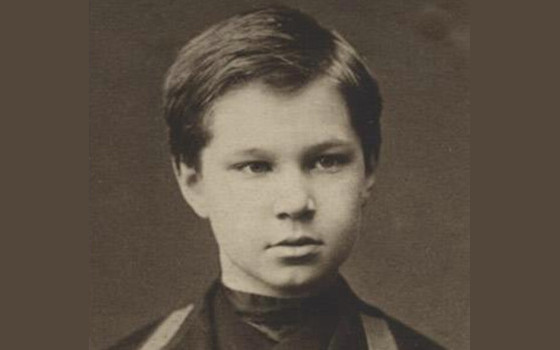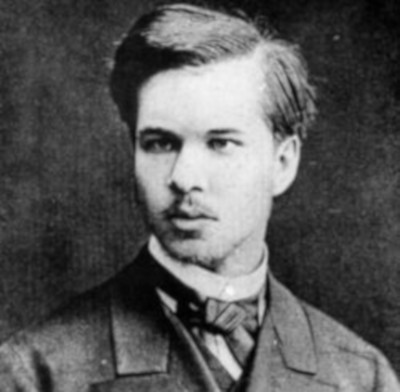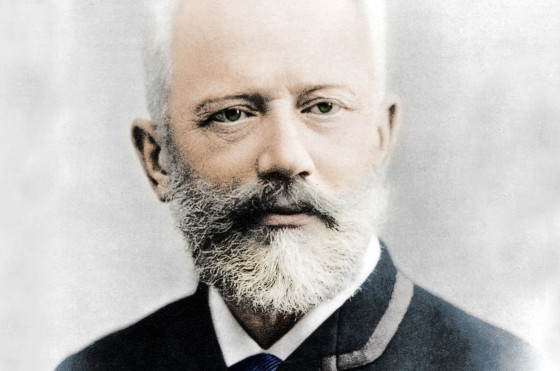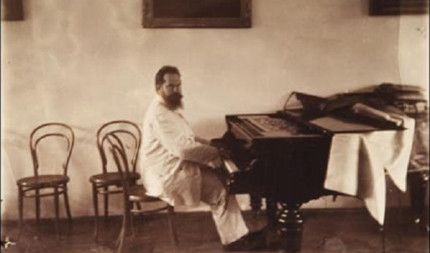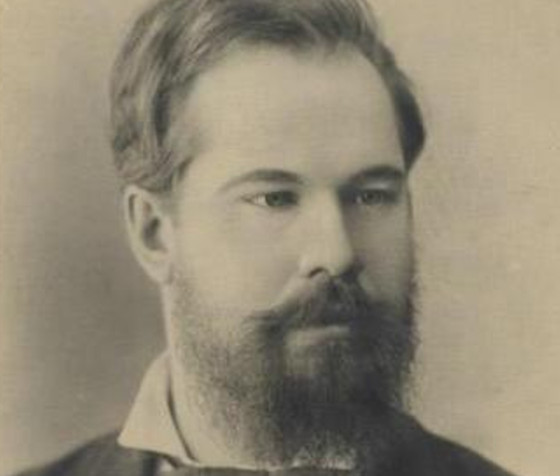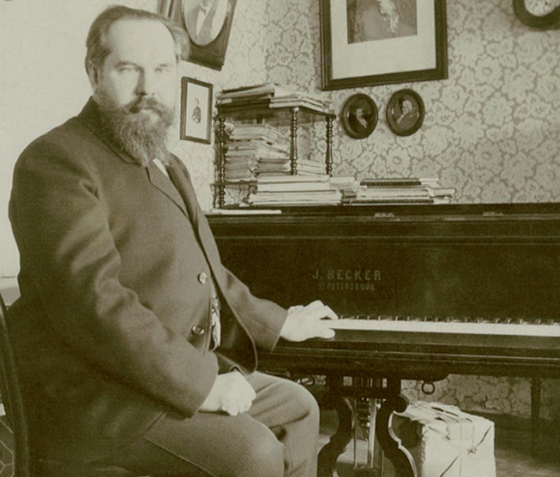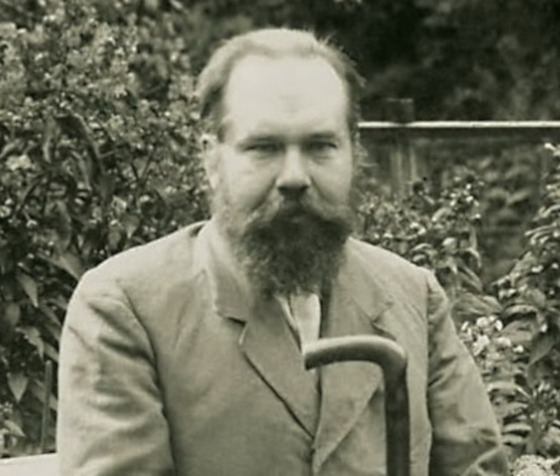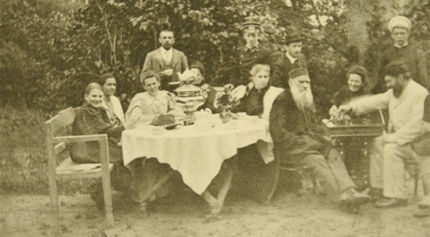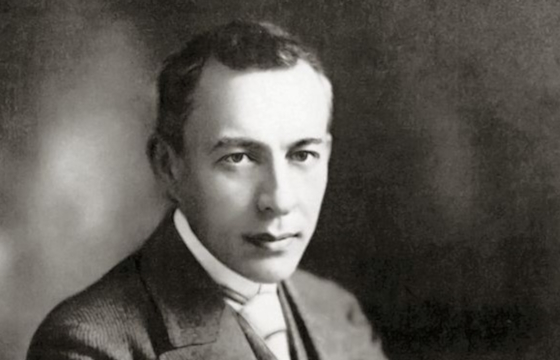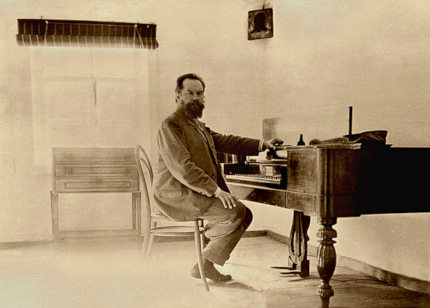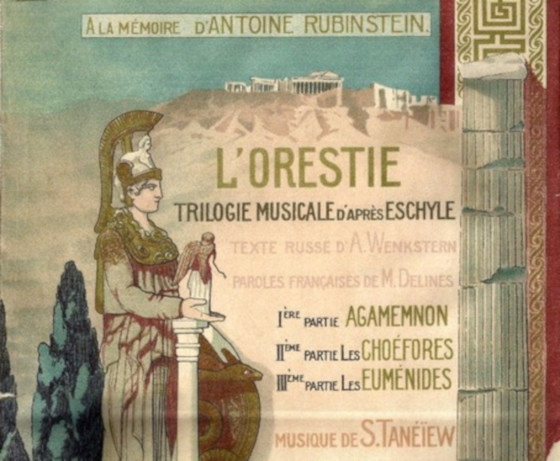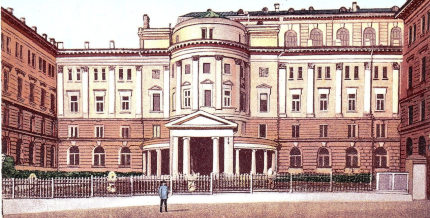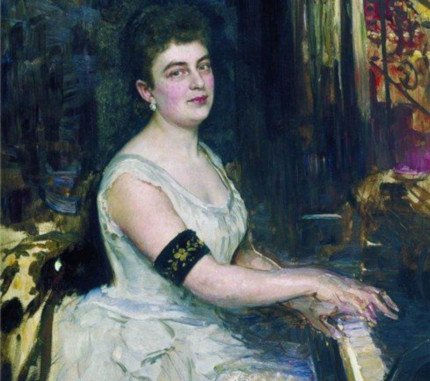| Edit | Map | Home | New Post | New Gallery |
Support
|
 | |
Sergei Taneev
Read a short biography of Sergei Taneyev and many interesting facts about the composer on our page.
Brief biography of Taneyev In the middle of the century before last, namely on November 25, 1856, in the ancient and beautiful city of Russia - Vladimir, in the house of a kind-hearted person, a descendant of an old noble family, state councilor, doctor and master of literature - Ivan Ilyich Taneyev, a joyful event occurred: Baby. The boy, whom his happy parents named Sergey, grew up in a benevolent and creative atmosphere: in the family they spoke three languages ??among themselves and could boast of the richest home library. In addition, the head of the family, being a highly educated person and passionately fond of literature and musical art, often arranged various creative evenings in his hospitable home.
Parents took great care of the comprehensive development of their sons, of whom there were two more besides Seryozha: the elder Vladimir and the middle Pavel. However, of the three children, only the youngest was gifted with musical abilities. Seryozha's talent, which manifested itself at an early age, was supported in every possible way, and from the age of five he began to study the piano with specially invited teachers, who noted the excellent ear, musical memory and extraordinary seriousness of the baby.
Adolescence and youth in Zlatoglavaya The Taneyev biography says that in the mid-seventies the Taneyev family moved to permanent residence in Moscow, where they acquired a modest house in Obukhovsky Lane. Sergei was assigned to study at the first classical gymnasium, and in 1966, after the opening of the Moscow Conservatory, he was enrolled as a volunteer in this educational institution, where for four years he was a student of E.L. Langer in piano and theoretical disciplines. In 1868, education at the gymnasium still had to be abandoned, since it was difficult for the boy to combine studies in two institutions at once, especially since general education disciplines were also taught at the conservatory. In September 1969, Sergei Taneyev became a full student of the conservatory, in addition, in theoretical disciplines, he was immediately assigned to the class of P.I. Tchaikovsky, and then continued to study instrumentation and composition from him. Already from the time when the teacher and the student began to communicate professionally, warm friendly relations began between them, which continued until the death of their beloved teacher.
The young man was very passionate about music and sometimes even scared his father. Ivan Ilyich began to worry that a one-sided education would have a detrimental effect on the general development of his son, and therefore Sergey's conservatory education was called into question. Only the director of the conservatory, Nikolai Grigoryevich Rubinshtein, could save the future composer from the wrong intentions of his parent. Usually stingy with praise, he spoke so approvingly of the young musician's talents that all Ivan Ilyich's fears about his son's future were dispelled in an instant. After this incident, Nikolai Grigorievich took Sergei to his class and taught him to play the piano until graduating from the conservatory. Moreover, without doubting that a talented student would have a great creative future for both the performer and the composer, Rubinstein invited Sergei to musical evenings,
Taneyev's debut as a pianist took place in 1874 at the Golitsyn Estate in Znamensky Lane. This was the first public performance of the young musician, where he brilliantly performed the works of Liszt and Chopin .. In the composition class, Sergei also lived up to all the expectations of his teacher P.I. Tchaikovsky. During the years of study, he became the author of major works, including symphonies, overtures and cantata. Taneyev graduated from the Conservatory at the age of nineteen simply brilliantly: he became the first student of this educational institution to receive a gold medal. The young man had great prospects for performing, composing and teaching activities, which he later successfully engaged in throughout his life, but at first the young man decided to make an educational tour outside the fatherland. At the invitation of his teacher and mentor N.G. Rubinstein, he visited Greece, Italy and Switzerland for educational purposes, where he studied the culture and art of these countries with interest. Returning to his homeland, Sergei Taneyev began an independent creative life.Concerto No. 1 for Piano and Orchestra P.I. Tchaikovsky .
french trip
In the spring of 1876, Sergei again goes to concerts in Russian cities, and in the summer, after a little rest, he leaves Russia again and goes to France to get acquainted with European art. In Paris, he diligently continues to study the piano, sitting at the instrument for 4-5 hours, regularly attends rehearsals of symphony orchestras conducted by such famous maestro as J. E. Padlou and E. Colonna, attends lectures in Sarbonne and various concert performances. He was lucky enough to be invited to "musical Thursdays" to the famous Pauline Viardot, who at that time only pleased her close friends with her beautiful singing. The circle of acquaintances of the young man greatly expanded: he became close to the writers Turgenev, Renan, Flaubert, and Zola, as well as composers - Fauré, Gounod, Saint-Saens, Duparc and d'Andy. Eight months spent in Paris were not in vain for Sergei, they inspired him to new creative achievements. The young musician overestimated his previous achievements and concluded that his education was insufficient. He established a program for himself, which he strictly followed all his life.
Creative takeoff The return to his homeland took place in July, but the beautiful summer weather did not tempt the musician. He set himself the goal of working out a number of interesting programs, which he subsequently performed at concerts during the current year. In 1878, cardinal changes took place in the life of Sergei Taneyev. His friend and teacher Pyotr Ilyich Tchaikovsky, tired of teaching, and besides having received pension material support from the state, decided to completely engage in creativity. He persuaded Taneyev, who by that time was only 22 years old, to take on his conservatory teaching load, which included a course in harmony, polyphony, analysis of musical forms and orchestration. And in 1881, after the death of N.G. Rubinstein, having received the position of professor, Sergei Ivanovich added to his teaching load the piano class of his beloved teacher. In 1884, on the recommendation of Tchaikovsky, Taneyev took the post of director of the conservatory, where he remained for four years. Enjoying great prestige not only of professors, but also of students, he not only restored the former prestige to the conservatory, but also introduced many innovations that improved the work of the institution. However, in 1889, due to dissatisfaction with administrative work and a strong attraction to creative activity, he left his leadership position and retained only the teaching load at the conservatory.
Unfortunately, at that time, Taneyev was still little engaged in composing activities, he was more interested in the upcoming production of his opera Oresteia, scheduled for September 1895 in St. Petersburg. The composer at that time often visited the capital, where he became close to the patron and owner of the music publishing house M. Belyaev, as well as St. Petersburg composers: Rimsky-Korsakov and Glazunov . Serious changes in the life of Sergei Ivanovich occurred in 1905. Outraged by the imperious methods of the leadership of the director of the conservatory V. Safronov, he left the walls of the institution and never returned there, and in addition, he refused the pension due to him. Nevertheless, Taneyev did not refuse his favorite pedagogical activity: he was engaged in private practice, teaching students completely free of charge.
After leaving the conservatory, Sergei Ivanovich continued to be a significant person in the musical life of Moscow. In 1906, he was one of the musical figures who initiated the opening of the People's Conservatory, the primary task of which was musical education and familiarizing ordinary people with classical music. In addition, Taneyev began to work as a teacher in it, with pleasure introducing the broad masses to art. In the same 1906, Taneyev completed work on the "Mobile Counterpoint of Strict Writing" - a unique work on which the composer pored over for about seventeen years. In 1908 he became one of the founders of the Music Theoretical Library, and in 1912 he was elected an honorary member. The last year in the life of the composer was 1915. Shocked by the untimely death in April of Alexander Scriabin, he, at the funeral, following the coffin of his student, caught a bad cold. Not attaching much importance to his illness, Taneyev continued to work actively. From the beginning of May, the composer's health deteriorated sharply and he was transported by car to the Dyutkovo family estate, where Sergei Ivanovich died on June 19.
Interesting facts about Sergey Taneev
Creativity of Sergei Taneyev
The creative life of Sergei Ivanovich was extremely rich and versatile. Moreover, Taneyev, a scientist, pianist and teacher, is inextricably linked with Taneyev, a composer, whom he left to his descendants a relatively small, but very valuable legacy. Being a zealous opponent of various newfangled musical trends, in his work he was based on folk and confidently followed the classical traditions of Western European and Russian music. His exorbitant interest in Bach and Mozart even seemed strange to the composer's contemporaries , in addition, they criticized his works, calling them outdated and dry. Yes, indeed, the works of Sergei Ivanovich are not characterized by open emotionality, but they are distinguished by wise concentration and the highest skill. Taneyev, a composer, synthesizing, as he believed, all the best that was in music, purposefully sought his own direction, his own style. His composing technique was as follows: if he conceived a work, he would first work out individual motifs and themes of the future creation, composing an infinite number of sketches, and only when he got his hand in working on the constituent parts, he began to build the work as a whole. To some of the composer's friends, this method seemed too sophisticated, but nevertheless, as a result of such painstaking analytical work, the composer created priceless creations of extraordinary beauty. Of course, using such an analytical method, Sergei Ivanovich could not boast of a large number of his works, however, among the works, The musical trilogy " Oresteia ", the libretto of which is built on the tragedies of Aeschylus and completed by Taneyev in 1895, was a new and interesting page in opera art, which attracted the attention of not only Russian, but also foreign musicians.
Of the composer's symphonic works, it is necessary to especially note the symphony number four, which was appreciated by the contemporaries of the outstanding maestro, and after his death became one of his most popular works. It is important to mention the exactingness of Taneyev to his work: he believed that this was the only one of his symphonies worthy not of a one-time performance, but of a full-fledged concert life, and therefore, unlike others, it was printed during the composer's lifetime. Sergey Ivanovich paid much attention in his work to choral music - this is an important part of his heritage and it can be very symbolic that his entire composer's path passes as if under an arch between two lyric-philosophical cantatas "John of Damascus" and " After reading the psalm ". The merit of Taneyev, who treated choral genres with great reverence, is the revival of a cappella choirs: he wrote more than forty of them. In addition, speaking of the composer's creative heritage, one cannot ignore his contribution to chamber-instrumental music. The trios, quartets and quintets written by him are among the best examples of Russian music in this genre, and the sixth quartet and the piano quintet are the pinnacles, marked by special monumentality.
Taneyev and the Moscow Conservatory The composer has almost forty years of his life connected with the Moscow Conservatory. According to Taneyev's biography, he was among the first students who crossed the threshold of this wonderful educational institution from the beginning of its opening, then, at the convincing request of Pyotr Ilyich Tchaikovsky, in 1878, within the walls of his native alma mater, he took up teaching. And pedagogical work fascinated Taneyev so much that he even relegated all his writing to the background. Three years later, the entire Russian culture suffered a heavy loss: Nikolai Grigorievich Rubinstein passed away. After his death, Tchaikovsky wrote in a letter to Taneyev that a talented student should continue the work of his teacher everywhere: in the director's office, in the special piano class, and also at the conductor's console. In 1881, Sergei Ivanovich took students from the piano class of Rubinstein, but flatly refused the director's position. However, four years later he was nevertheless persuaded to take the director's office, so things in the decapitated conservatory went very badly. The directors' committee elected in 1883 could not cope either with material difficulties or with the confusion that arose among the professorial staff.
Taneyev took the post of director in September 1885 and immediately began active transformations, as a result of which complete order was restored. He corrected financial affairs, updated the composition of teachers, improved academic discipline, made adjustments to curricula, and also introduced some innovations. For example, at his direction, a music library was organized, and student reporting concerts were systematically held. The position of director brought Sergei Ivanovich a steady income, but administrative activities weighed heavily on him. He wanted to devote himself completely to creative and scientific work, but he did not have time for this at all. In May 1889, he informed everyone that he was leaving the post of director and transferring the duties of the head to V. Safonov. Now he could once again enjoy doing what he loved. for example, to teach personally developed by him the most interesting subject - counterpoint. Later, all the achievements of the professor became the basis of his theory, which he described in a fundamental scientific work called "Mobile counterpoint of a strict style." In addition, Taneyev at the Moscow Conservatory created a coherent system of theoretical education for musicians: he not only developed programs in relevant subjects, but also made changes to the teaching methods. It should also be noted that Sergei Ivanovich was among the first who came up with the idea to make a distinction in professional music education between the middle and higher levels. called "Movable Counterpoint of the Strict Style". In addition, Taneyev at the Moscow Conservatory created a coherent system of theoretical education for musicians: he not only developed programs in relevant subjects, but also made changes to the teaching methods. It should also be noted that Sergei Ivanovich was among the first who came up with the idea to make a distinction in professional music education between the middle and higher levels. called "Movable Counterpoint of the Strict Style". In addition, Taneyev at the Moscow Conservatory created a coherent system of theoretical education for musicians: he not only developed programs in relevant subjects, but also made changes to the teaching methods. It should also be noted that Sergei Ivanovich was among the first who came up with the idea to make a distinction in professional music education between the middle and higher levels. Taneyev worked at the conservatory until 1905, when revolutionary unrest began in the country. The professor expressed dissatisfaction with the expulsion of unreliable students of the conservatory, and also spoke in favor of education reform, presenting his draft of changes. Such activities of the professor aroused the anger of the director of the institution V. Safonov, who called Taneyev into an unpleasant conversation. After mutual accusations, Sergei Ivanovich wrote a letter of resignation and, despite the persuasion of colleagues and students, his decision remained firm.
Composer's personal life
Unfortunately, very little is known about Taneyev's personal life. He did not have a family, he lived all his life with his nanny P. Chizhova, who was his friend, adviser and mistress in the house. Since the composer was distinguished by isolation, he never told anyone about himself, and only one letter, found by chance a few years after his death, helped to dot the drama of his whole life. Sergei Ivanovich in the eighties made a pleasant acquaintance with the pianist, the wife of the famous architect and painter Albert Benois - Maria. Mutual attraction arose, but the relationship had to be interrupted, since by that time the woman was already the mother of four children, who would have remained with their father in a divorce. In addition, Taneyev was afraid that he would not be able to financially provide for his beloved and give her the life she was used to. The composer had a glimmer of hope that he would still meet a worthy woman and create a family with her in which there would be children. However, it did not work out, and loneliness haunted him all his life.
Sergei Ivanovich and his famous relatives The most ancient family of pillar nobles Taneyev, starting its reckoning from the 15th century, had many worthy representatives who faithfully served their Fatherland. For example, a relative of the composer - Sergei Alexandrovich Taneyev was a high-ranking official, a real secret adviser. His son, Alexander Sergeevich, served as the chief manager of His Imperial Majesty's Own Chancellery. In addition, Alexander Taneyev, having received a serious musical education (N. A. Rimsky-Korsakov himself was his home teacher in composition theory), was an amateur composer, whose works were successfully accepted both in Russia and abroad. There are quite a few compositions in his creative heritage, including two symphonies, suites, string quartets, romances and even the opera "Cupid's Revenge". The daughter of Alexander Sergeevich Taneyev - Anna Alexandrovna Vyrubova (nee Taneeva) was the maid of honor and closest friend of the last Russian Empress Alexandra Feodorovna. Pages from the life of Anna Taneeva are interestingly displayed in the historical television series "Grigory R." filmed in 2016. Another representative of the Taneevsky family, who deserves special attention, is Vladimir Ivanovich, the composer's own elder brother. He was a very erudite man with a very wide range of interests. He was engaged in the practice of law and economics, adhered to progressive views, was personally acquainted with Karl Marx, being a staunch supporter of his ideas.
The active and very diverse creative life of Sergei Ivanovich Taneyev is of great importance for the national musical culture. Unfortunately, his musical works did not immediately find true recognition, but today they are perceived as a real asset of the Silver Age and are listened to with joy and inspiration. |
Author: Sonya Version: 1 Language: English Views: 0
|
Short link: https://www.sponsorschoose.org/a236
Short link to this version: https://www.sponsorschoose.org/n264
Created by Sonya at 2023-06-30 08:07:19
Last modified by Sonya at 2023-06-30 08:35:24
|


